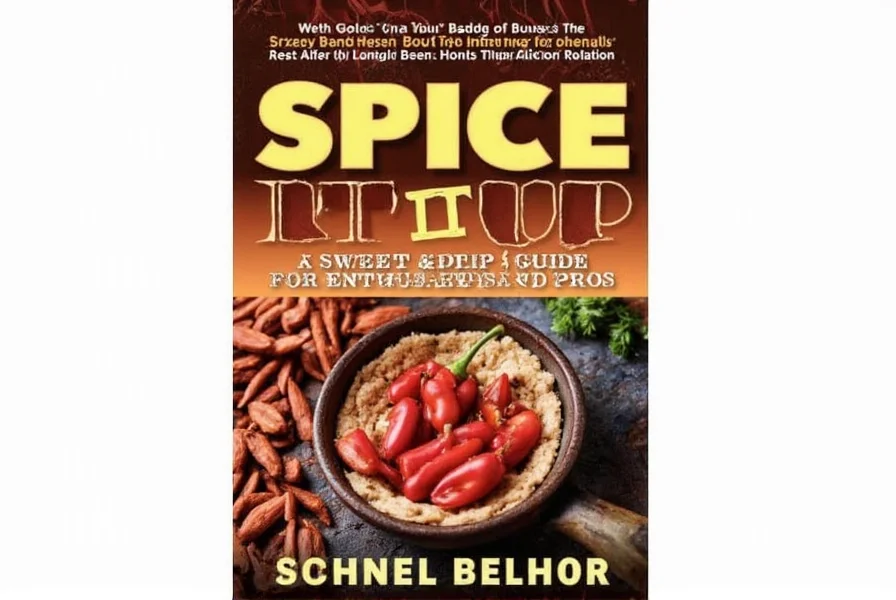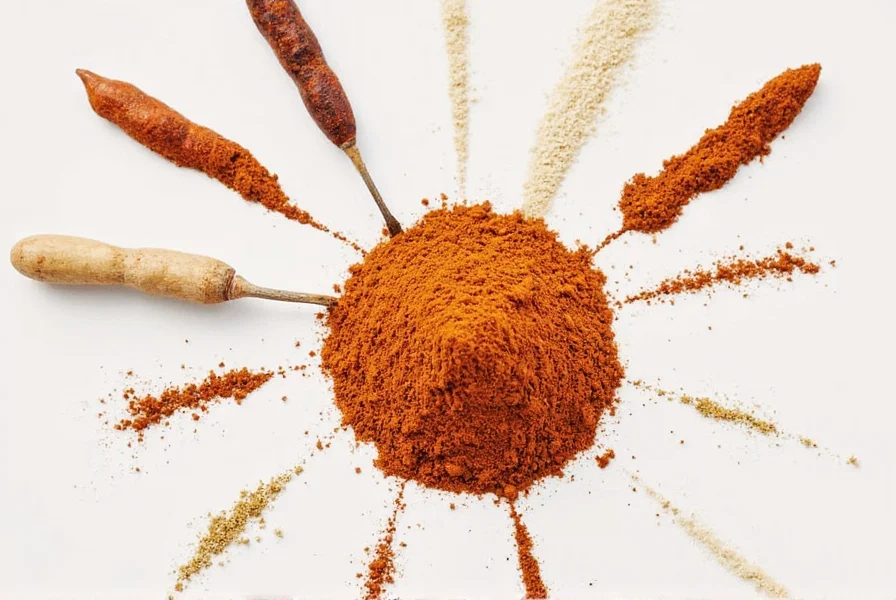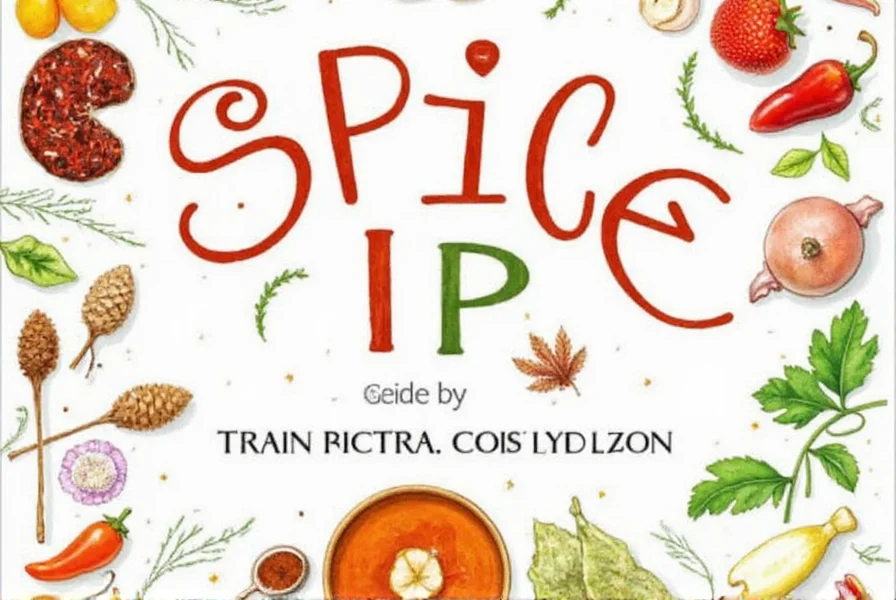Table of Contents
What Are Greek Spices and Why Are They Essential?
Greek spices are the essential herbs and seasonings that define traditional Greek cuisine, known for their fresh, aromatic, and earthy flavors. Key spices include oregano, dill, cumin, saffron, and chili flakes, each contributing unique characteristics to dishes like souvlaki, tzatziki, and moussaka. These spices have been used for centuries in Greece's Mediterranean climate, blending tradition with bold taste profiles that transform simple ingredients into memorable meals.
Top 5 Greek Spices for Authentic Cooking
Discover the core Greek spices that form the foundation of the country's culinary identity:
- Oregano (Ορίγανο): Greek oregano is more robust and aromatic than Italian varieties, with a peppery, earthy note. It's essential for grilled meats, tomato-based sauces, and salads.
- Dill (Σκόρδο Σκορδί): This delicate herb adds a fresh, slightly tangy flavor to fish, soups, and tzatziki. Its versatility makes it a staple in many Greek kitchens.
- Cumin (Κιννάμομο): Used in both savory and sweet dishes, cumin provides a warm, nutty depth to stews, lamb, and traditional desserts like kourabiedes.
- Saffron (Σεφίλι): Prized for its golden hue and subtle floral aroma, saffron is key in rice dishes, soups, and desserts, adding luxury to any recipe.
- Chili Flakes (Φαστίκι): For a smoky, spicy kick, Greek chili flakes enhance grilled vegetables, soups, and dips without overpowering other flavors.




| Spice | Greek Use | Indian Use | Mexican Use |
|---|---|---|---|
| Oregano | Grilled meats, tomato sauces | Used in chutneys and dry rubs | Less common, but sometimes used in Mexican-style stews |
| Dill | Fish, tzatziki, soups | Not widely used | Also used in seafood dishes |
| Cumin | Lamb, stews, desserts | Core ingredient in curries and garam masala | Used in tacos, chili, and mole |
| Saffron | Rice dishes, soups | Essential in biryanis and kormas | Used in Spanish paella and some Mexican dishes |
| Chili Flakes | Grilled veggies, soups | Used in hot curries and chutneys | Common in salsas and spicy stews |
Practical Cooking Tips with Greek Spices
Maximize the flavor of Greek spices with these expert tips:
- Use Fresh Herbs Whenever Possible: Greek oregano and dill deliver the best flavor when fresh. If using dried, add them earlier in cooking to release full aroma.
- Toast Cumin for Depth: Lightly toast whole cumin seeds before grinding to enhance their nutty, smoky notes in stews or marinades.
- Infuse Olive Oil: Create a simple infused oil with oregano or dill for drizzling over bread, salads, or roasted vegetables.
- Balance Heat with Cooling Ingredients: Pair chili flakes with yogurt, cucumber, or mint to create refreshing contrasts in dips or grilled dishes.
- Use Saffron Sparingly: Soak a pinch of saffron threads in warm water or broth for 10 minutes before adding to rice or soups for even color distribution.

Buying Guide for Greek Spices
Find authentic Greek spices with confidence using this guide:
1. Oregano
- Product Name: Greek Oregano - Dried
- Features: Handpicked from Crete for intense flavor
- Advantages: Strong aroma, long shelf life
- Use Cases: Baking, roasting, seasoning meats
- Target Audience: Home cooks, food enthusiasts
- Suitable Occasions: Weeknight dinners, holiday feasts
2. Dill
- Product Name: Fresh Dill - Frozen
- Features: Preserved at peak freshness
- Advantages: Convenient for year-round use
- Use Cases: Tzatziki, soups, seafood
- Target Audience: Chefs, home cooks
- Suitable Occasions: Summer meals, light lunches
3. Cumin
- Product Name: Ground Cumin - Organic
- Features: Cold-pressed for maximum flavor
- Advantages: Rich, nutty flavor without bitterness
- Use Cases: Stews, marinades, baked goods
- Target Audience: Health-conscious individuals, chefs
- Suitable Occasions: Family dinners, potlucks
4. Saffron
- Product Name: Premium Saffron Threads
- Features: Hand-selected from Greece
- Advantages: Intense color and aroma
- Use Cases: Rice dishes, soups, desserts
- Target Audience: Gourmet chefs, specialty food lovers
- Suitable Occasions: Special events, fine dining
5. Chili Flakes
- Product Name: Greek Chili Flakes - Smoked
- Features: Made from locally grown peppers
- Advantages: Adds smoky heat without overpowering
- Use Cases: Salads, grilled veggies, dips
- Target Audience: Spice lovers, adventurous eaters
- Suitable Occasions: BBQ parties, casual gatherings



Frequently Asked Questions
What makes Greek oregano different from regular oregano?
Greek oregano has a more robust, earthy flavor with a distinct peppery note compared to Mediterranean or Italian varieties. It grows in Greece's mountainous regions, where rocky soil and sunny climate concentrate its aromatic compounds, making it ideal for grilled meats and tomato-based dishes.
Where can I find authentic Greek spices?
Authentic Greek spices are best sourced from specialty Greek markets, reputable online retailers specializing in Mediterranean products, or directly from Greek producers. Look for labels specifying regions like Crete, Peloponnese, or Mount Athos, which are known for premium spice quality. Avoid generic "Mediterranean" blends if you seek true Greek flavors.
How should I store Greek spices to maintain freshness?
Store Greek spices in airtight containers away from light, heat, and moisture. Whole spices (like cumin seeds) last longer than ground versions—up to 4 years versus 2-3 years. Greek oregano and dill retain best flavor when stored whole and crumbled just before use. Saffron should be kept in its original dark container or wrapped in foil to preserve its delicate compounds.
Can I substitute Greek spices in non-Greek recipes?
Absolutely! Greek spices enhance many global dishes. Try adding Greek oregano to pizza sauces for extra depth, use dill in Scandinavian-inspired salmon dishes, incorporate cumin in chili recipes, or add saffron to risotto. Adjust quantities based on flavor intensity—Greek oregano is more robust than Italian, so use slightly less when substituting.
What's the difference between Greek and Middle Eastern spice blends?
Greek cuisine focuses on individual herbs like oregano, dill, and mint, creating simpler, herb-forward profiles. Middle Eastern blends (e.g., za'atar or baharat) combine multiple spices like sumac, sesame, and warm spices for complex flavors. Greek cooking also emphasizes olive oil as a base, while Middle Eastern dishes often use yogurt or tahini, resulting in different flavor vehicles.
How do I use saffron without wasting it?
Use saffron sparingly—just a pinch per dish. Soak threads in warm water or broth for 10 minutes before adding to rice, soups, or desserts. This releases maximum color and flavor. Store unused saffron in a dark, airtight container to preserve potency. A little goes a long way in elevating dishes without overpowering them.
Conclusion
Greek spices are more than just flavor enhancers—they're a gateway to Mediterranean culinary heritage. From the robust earthiness of oregano to the delicate tang of dill, these ingredients transform ordinary meals into extraordinary experiences. By mastering simple techniques like toasting cumin or infusing olive oil, you can effortlessly bring authentic Greek flavors to your kitchen. Start experimenting today, and let these timeless spices inspire your next culinary creation.










 浙公网安备
33010002000092号
浙公网安备
33010002000092号 浙B2-20120091-4
浙B2-20120091-4